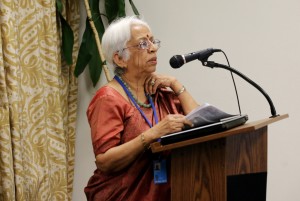
AIWC (All India Women’s Conference) was formed by prominent women who were deeply involved in India’s freedom struggle. With the combined efforts of these pioneering women, and their successors across the last 87 years, the organization has been able to influence lawmakers and society to enact multiple laws for the benefit of women.
The most important amongst them are:
- Sarda Act 1929
- Maternity benefit law 1961
The first law was for abolition of child marriage which was the biggest roadblock for a girl’s education and the second provided a congenial environment for working women.
To highlight the organizations’ deep roots I’ve highlighted a case study of AIWC’s work with rural women. This is especially important for a country like India where the majority of the population still lives in rural areas India (~69% per 2011 Census).
Village Adoption – A Case Study
In 2006 AIWC adopted a village in Haryana, a neighbouring state to the capital city – New Delhi. The village was chosen was because it had a woman as the Head of the Panchayat (A Village council traditionally of 5 elders in the village). In an effort to bring women to take up leadership roles the Government of India had allocated a certain percentage of seats for them in the Panchayat. But unfortunately though led by a woman the Panchayat was dominated by men. Additionally, caste was also a predominant issue with the upper caste discriminating against the lower caste.
AIWC set up educational classes for women in the village as most of them were illiterate and combined it with skill training. There was one class held for both castes which broke the caste barrier. Women from both the castes would have to sit together and attend classes. Combined with counselling and advocacy programs the women had a change in outlook over time and even encouraged their daughters to study.
The skill programs got gradually converted into economic activity and the marketing of produced goods was assisted by AIWC. Women were encouraged to form Self-Help Groups (SHGs) and this provided them with a common platform. The next step was a big leap for them – the SHGs took agricultural land on lease from the civic authorities for farming. This was a significant as most of them were daily wage earners on farms. Confident of this success, at present, some members have leased the land on an individual basis.
With their new-found economic empowerment the women started getting involved in civic matters of the village. Some of the key projects they worked on are a Solar Energy project to supplement the dismal electricity supply for their village and building toilets which was seen as a social and infrastructure problem in the village. Overall, the quality of life of each household improved significantly over time. Lastly, AIWC helped by setting up computer training schools (run by villagers themselves) hence helping with job opportunities for the youth.
Over a period of 9 years this group of women have become a part of AIWC by forming a branch and a success story for AIWC and their village.


